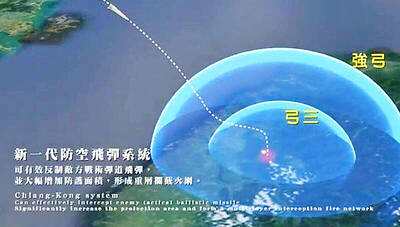Asian currencies fell this week, led by South Korea’s won and Indonesia’s rupiah, as investors fled emerging-market assets to avoid risk from a deepening global economic slump.
Nine of the 10 most-active currencies in Asia dropped over the five days as the MSCI Asia-Pacific Index slumped 6.8 percent, the biggest drop since the period ended Oct. 24.
The rupiah fell to a decade low on Friday after Bank Indonesia Governor Boediono said the deposit guarantee agency will take over the operations of PT Bank Century, the nation’s 13th-biggest lender by market value, to provide more security for customers.
The won declined 6.4 percent this week to 1,495 per dollar, according to Seoul Money Brokerage Services Ltd. It touched 1,525 a dollar on Friday, the weakest since March 1998.
The rupiah dropped 4.3 percent for the week to 12,100 per dollar.
The yen rose for a third week against the dollar and the euro on speculation the slump in global stocks will prompt investors to sell higher-yielding assets and pay back loans made in Japan’s currency.
The yen traded at ¥95.94 per dollar in New York, versus ¥97.14 a week ago.It was at ¥120.71 per euro from ¥122.39 last Friday.
The Philippine peso fell 0.9 percent this week to 49.82 per US dollar, after touching 50.17.
Elsewhere, the New Taiwan dollar dropped 0.8 percent this week to NT$33.079 against the US currency, India’s rupee slumped 1.9 percent to 50.0675 and the Singapore dollar weakened 0.9 percent to S$1.5301. Thailand’s baht fell 0.5 percent to 35.22 and Vietnam’s dong was little changed at 16,972.
The 15-nation euro surged to US$1.2587 in late New York trading on Friday, up from US$1.2507 late on Thursday but still off its high of US$1.2640 in overnight trading.
The British pound jumped to US$1.4908 from US$1.4812.
In other New York trading, the US dollar dropped to C$1.2685 from C$1.2842 late on Thursday, and dipped to 1.2225 Swiss francs from SF1.2233.

LIMITS: While China increases military pressure on Taiwan and expands its use of cognitive warfare, it is unwilling to target tech supply chains, the report said US and Taiwan military officials have warned that the Chinese People’s Liberation Army (PLA) could implement a blockade within “a matter of hours” and need only “minimal conversion time” prior to an attack on Taiwan, a report released on Tuesday by the US Senate’s China Economic and Security Review Commission said. “While there is no indication that China is planning an imminent attack, the United States and its allies and partners can no longer assume that a Taiwan contingency is a distant possibility for which they would have ample time to prepare,” it said. The commission made the comments in its annual

DETERMINATION: Beijing’s actions toward Tokyo have drawn international attention, but would likely bolster regional coordination and defense networks, the report said Japanese Prime Minister Sanae Takaichi’s administration is likely to prioritize security reforms and deterrence in the face of recent “hybrid” threats from China, the National Security Bureau (NSB) said. The bureau made the assessment in a written report to the Legislative Yuan ahead of an oral report and questions-and-answers session at the legislature’s Foreign Affairs and National Defense Committee tomorrow. The key points of Japan’s security reforms would be to reinforce security cooperation with the US, including enhancing defense deployment in the first island chain, pushing forward the integrated command and operations of the Japan Self-Defense Forces and US Forces Japan, as

INTERCEPTION: The 30km test ceiling shows that the CSIST is capable of producing missiles that could stop inbound missiles as they re-enter the atmosphere Recent missile tests by the Chungshan Institute of Science and Technology (CSIST) show that Taiwan’s missiles are capable of intercepting ballistic missiles as they re-enter the atmosphere and pose a significant deterrent to Chinese missile threats, former Hsiung Feng III missile development project chief engineer Chang Cheng (張誠) said yesterday. The military-affiliated institute has been conducting missile tests, believed to be related to Project Chiang Kung (強弓) at Pingtung County’s Jiupeng Military Base, with many tests deviating from past practices of setting restriction zones at “unlimited” and instead clearly stating a 30.48km range, Chang said. “Unlimited” restrictions zones for missile tests is

PUBLIC SAFETY: The nationwide distribution campaign aims to enhance society’s overall understanding of threats and bolster defense awareness, an official said The latest edition of the National Public Safety Guide is being mailed to all citizens starting today to foster public awareness of self-defense in the event of war or natural disasters, the Ministry of National Defense said yesterday. “The guides will be disseminated to the public to enhance society’s overall understanding of threats and bolster defense awareness, demonstrating the government’s emphasis on people’s safety and its determination to pursue self-defense,” All-out Defense Mobilization Agency Director Shen Wei-chih (沈威志) said at the ministry’s news conference. The nationwide distribution campaign was planned according to President Lai William’s (賴清德) Sept. 20 directive, he said, adding